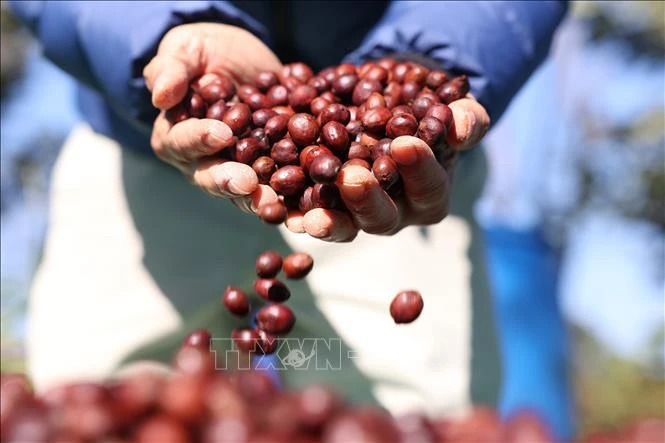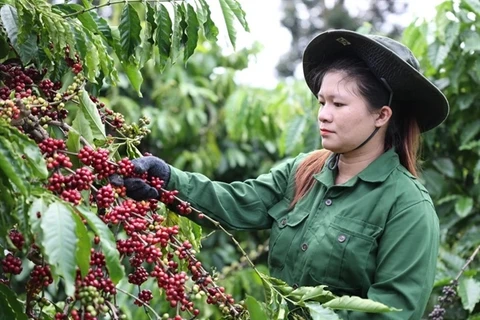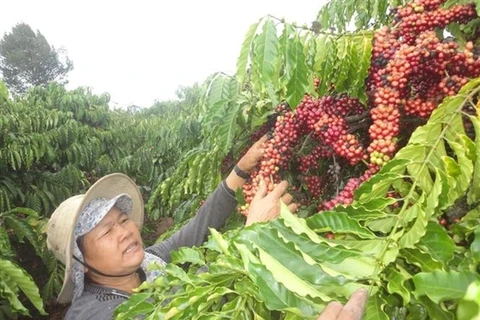
Hanoi (VNA) – It is a great time for Vietnam to build on specialty coffee segment to enhance its global recognition and increase its value in the coffee supply chain.
Although Vietnam is a major coffee exporter worldwide, the country primarily exports raw materials, which remain largely unknown among global consumers.
Trinh Duc Minh, President of the Buon Ma Thuot Coffee Association, noted that the global specialty coffee market has developed over the past three to four decades, while Vietnam’s has only started in the last decade.
According to Minh, Vietnam is developing both Arabica and Robusta specialty coffee, with a stronger emphasis on the latter, given that the country is the world leader in its production and export.
Additionally, due to the local natural conditions, practices, and experiences, Robusta products account for the lion’s share of Vietnam’s coffee production and consumption markets.
Unlike conventional coffee production, achieving high-quality specialty coffee requires a significant focus on harvest and post-harvest processes, which Minh identified as the weakest link in the country’s coffee industry.
The Ea Kiet Agricultural Cooperative in the Central Highlands province of Dak Lak manages 400 hectares of coffee, with a dedicated specialty coffee farm of just 1 hectare producing approximately 1 tonne.
The cooperative's deputy director Vo Manh Tuoi noted that producing specialty coffee is much more challenging due to technical requirements, the selection of growers, and the management of care practices, including choosing the right varieties, fertilisers, irrigation, pest control, and harvesting techniques. Coffee should only be harvested when it is fully ripe, with the post-harvest work involving meticulous anaerobic processing, fermentation, and drying methods.
Dang Dinh Ha, Director of the Vietnam Coffee and Tea Import-Export Company, stated that specialty coffee production in Vietnam is still relatively small and is not widely recognised by consumers. In his company, this type of coffee accounts for only 10% of total sales.
Le Duc Huy, General Director of Simexco Dak Lak, said he believes that the nation is on the right track in developing Robusta as the national brand. Specialty products will serve as a pathway for the trade of Vietnamese coffee.
Vietnamese Robusta samples have been sent to the Specialty Coffee Association (SCA) and have received high ratings of 86 to 87 points. According to SCA standards, specialty coffee scores between 80 to 100 points.
Minh pointed out that there are limited resources and qualified individuals available to guide farmers in producing specialty coffee. The association has conducted annual training sessions and workshops for farmers on the production, followed by competitions to assess the quality of their products and endeavors to connect farmers with buyers.
In a word, Vietnam pins hopes on the concerted efforts of farmers, businesses, and associations to elevate its specialty coffee to new heights./.






















